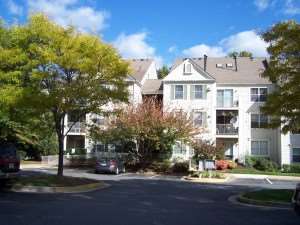Reserve Studies for Homeowners Associations
Why are replacement reserves essential for your homeowners’ association?
One of the primary duties of the association is to protect and enhance residential property values. Properly maintaining and replacing the common assets of any community starts with financial sustainability. See below for the information you need to make an informed choice about getting a reserve study done. We even have a sample report for you to view so you can see just what you will be receiving when you get to the end of the whole process.
Still have questions, contact us here. Ready to request a free proposal, begin here.

Key Points for Homeowners Associations
Why must your community establish and maintain a Replacement Reserve fund?
“One of the primary business duties of community associations … is to maintain and preserve the property values of the residential units and the common property. The replacement reserve fund has a tremendous impact on an association’s future, regardless of age, size or architectural type of the development.”*
- It meets the legal, fiduciary, and professional requirements.A replacement fund may be required by:
• Banks, Mortgage Lenders,
• State statutes, regulations, or court decisions;
• Your community’s governing documents. - The replacement fund enhances resale values. Many new buyers, lenders, and real estate professionals are aware of the ramifications of inadequate replacement funds.
- The fund provides for the planned replacement of major common items. Owners expect their association to fulfill its obligations to replace worn or obsolete items. This allows for the aesthetic qualities of the community to be maintained, thereby also enhancing property values.
- It minimizes the need for special assessments. Insufficient funding may lead to special assessments when major elements must be replaced. A history of past or pending special assessments may hurt property values.
- It distributes the contributions of old and new owners. Major items deteriorate with use and age. Although a roof will be replaced when it is 20 to 25 years old, every owner who lived under that roof should pay a share of its replacement.
- Accounting standards require proper maintenance of a replacement fund. In 1991, the AICPA released its guidelines addressing Common Interest Realty Associations. This guide, called the CIRA guide, specifically states that communities must disclose information about reserve funding policy.
* A paraphrased excerpted from the Community Association Institute’s Guide for Association Practitioners #24.
Key Points for Homeowners Associations
Why must your community establish and maintain a Replacement Reserve fund?
“One of the primary business duties of community associations … is to maintain and preserve the property values of the residential units and the common property. The replacement reserve fund has a tremendous impact on an association’s future, regardless of age, size or architectural type of the development.”*
- It meets the legal, fiduciary, and professional requirements.A replacement fund may be required by:
• Banks, Mortgage Lenders,
• State statutes, regulations, or court decisions;
• Your community’s governing documents. - The replacement fund enhances resale values. Many new buyers, lenders, and real estate professionals are aware of the ramifications of inadequate replacement funds.
- The fund provides for the planned replacement of major common items. Owners expect their association to fulfill its obligations to replace worn or obsolete items. This allows for the aesthetic qualities of the community to be maintained, thereby also enhancing property values.
- It minimizes the need for special assessments. Insufficient funding may lead to special assessments when major elements must be replaced. A history of past or pending special assessments may hurt property values.
- It distributes the contributions of old and new owners. Major items deteriorate with use and age. Although a roof will be replaced when it is 20 to 25 years old, every owner who lived under that roof should pay a share of its replacement.
- Accounting standards require proper maintenance of a replacement fund. In 1991, the AICPA released its guidelines addressing Common Interest Realty Associations. This guide, called the CIRA guide, specifically states that communities must disclose information about reserve funding policy.
* A paraphrased excerpted from the Community Association Institute’s Guide for Association Practitioners #24.

